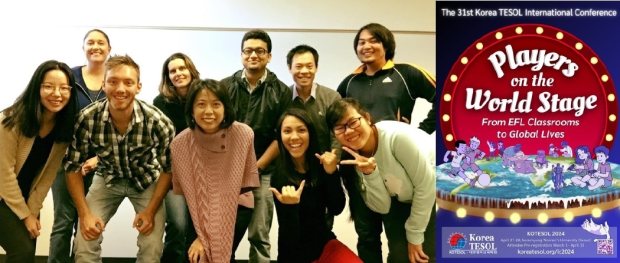
Aya Matsuda – Plenary Speaker @ KOTESOL 2024
![]() Plenary Session
Plenary Session
From EFL Students to EIL Users: Preparing Students for Today’s Globalized World
While English is not by any means the only important language used in today’s multilingual, globalized world, there is no question that it plays an important role as an international lingua franca. One of the most crucial responsibilities we have as English language teachers is to prepare our students for this reality.
In this presentation, I will first provide a brief overview of the current state of the English language, specifically focusing on its global spread and resulting linguistic, user, and cultural diversities. I argue that traditional approaches to English language teaching, which focus heavily, if not exclusively, on the English varieties, users, and cultures of the “inner circle,” may not adequately prepare our students for the complex reality of English usage today. Then, using the framework of teaching English as an international language (TEIL) and providing examples of pedagogical ideas, I explore ways to better align our pedagogical assumptions and practices with the sociolinguistic reality of English as an international language (EIL) and to assist our students in becoming competent EIL users who can navigate and achieve their goals in today’s globalized world.
![]() Invited Second Session
Invited Second Session
TEIL as a Tool for Decolonizing and Anti-Racist Pedagogy
In this presentation, I share my (reluctant) journey to join the ongoing conversation about coloniality and racism in TESOL and explore the efficacy of teaching English as an international language (TEIL) – a relatively new approach to ELT informed by World Englishes and English as a lingua franca studies – as a decolonizing and anti-racist pedagogy tool in ELT. I will first discuss some examples of ELT practices that have been criticized for their coloniality and racism, and then demonstrate how TEIL challenges, deconstructs, and redefines their meaning and places in ELT.
TEIL, by no means, is neutral or immune from the coloniality of ELT; it does not solve or eliminate the problem of coloniality or racism in the field altogether either. I argue, however, that it has the potential to diffuse them by deconstructing problematic assumptions and practices and to serve as an accessible entryway for ELT professionals interested in addressing these issues in/through their teaching.
 Biosketch
Biosketch
Aya Matsuda, PhD, born and raised in Japan, currently works as a professor of applied linguistics at Arizona State University, USA. Her research interests include the use of English as an international language and the pedagogical implications of its global spread. Her work focusing on these issues has appeared in various books and journals, including English Today, JALT Journal, TESOL Quarterly, and World Englishes. Additionally, her edited volumes, Principles and Practices of Teaching English as an International Language (2012) and Preparing Teachers to Teach English as an International Language (2017), were published by Multilingual Matters. Dr. Matsuda has served on the board of directors for the TESOL International Association and as a secretary/treasurer of the International Association for World Englishes.
Select Sites
Aya Matsuda: Arizona State University.
Aya Matsuda: Experts.asu.
Aya Matsuda: Google Scholar.
Aya Matsuda: ResearchGate.
Aya Matsuda: LinkedIn.
Aya Matsuda Interview in The English Connection.
![]() Return to Invited Speakers webpage.
Return to Invited Speakers webpage.
![]() Return to International Conference frontpage.
Return to International Conference frontpage.

| Attachment | Size |
|---|---|
| 217.58 KB |


